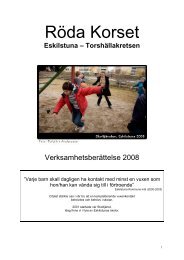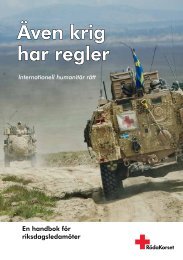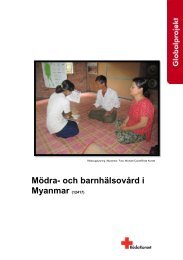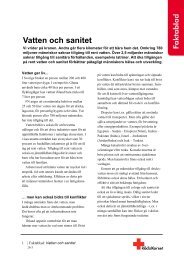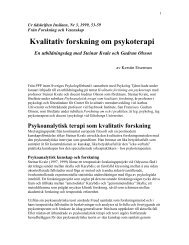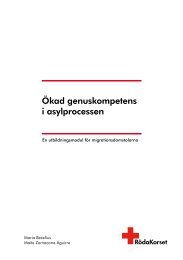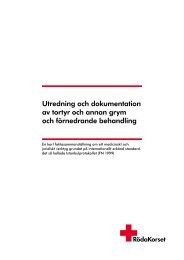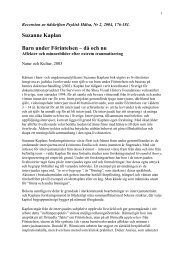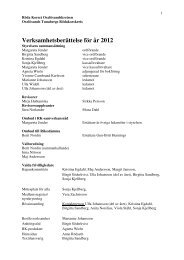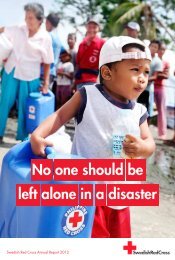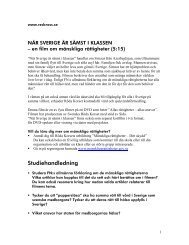chapter 4 - DRK
chapter 4 - DRK
chapter 4 - DRK
You also want an ePaper? Increase the reach of your titles
YUMPU automatically turns print PDFs into web optimized ePapers that Google loves.
Strictly under embargo until Wednesday 22 September at 00:01 GMT (02:01 Geneva time)The Red Cross has 90 first-aid stationsthroughout the city and all its ambulances areequipped with GPS and closed circuit television.The command centre at headquarters alwaysknows where its ambulances are and theycan be diverted at a moment’s notice to thescene of a major accident. Doctors can assistremotely with the early treatment of seriously injuredpatients and ensure patients are broughtto the appropriate hospital department.In 2009, in pursuit of their goal of savingboth time and lives, they augmented their vehiclefleet with 50 motor bikes for first aiders whoare equipped with Personal Digital Assistants(or palmtops) and GPS. “Motorcycles canreach the patients very fast when there aretraffic jams. So we can make good use of thefirst four to six minutes after the call comes in,for this is the most precious period of time especiallyif the ambulance is going to be delayedby traffic,” said Han.In addition, she explained: “999 has aspecial programme for more than 200,000households in Beijing. If they press a certainbutton on their phone panel, 999 will beaware of the basic medical background of thefamily, medical records, address and phonenumber. These are usually families looking afteran elderly person.”The Chinese Red Cross has developed aunique mobile phone platform with many featuresnot found on standard models. The GPSequippedphones have proved useful to manyfamilies caring for a senile senior citizen lostin the city. The phones have an alarm buttonwhich will alert the Red Cross emergencycentre when activated without even making aphone call. The phones can vocalize text messagesfor those who have poor sight and actas a torch and they also have an in-built radio.A third generation of this mobile phone,which costs less than US$ 100, is now underdevelopment. It can dial 999 when activatedby an immobilized patient wearing a watchlikedevice on the wrist.The Beijing Red Cross provides many otherservices including helping victims of traffic accidentscompile insurance claims through the 999forensic centre’s reports and providing medicalcare to anyone being held in police custody.“Hi-tech equipment is only one aspect ofour work. In addition to the technology wehave also been focusing on increasing people’sknowledge, skills and general awarenessabout disaster risk reduction. The BeijingRed Cross issued 6 million copies of its familyfirst-aid manual in Beijing last year. More than3 million people had received basic first-aidtraining by the end of 2009. We will continueto enhance our smart power – strategic planningand management in order to build a saferand securer mega-city,” concluded Han.Visitors to one of the city’s most populartourist attractions, Tiananmen Square, will behappy to hear that there is a first-aid post andambulance stationed there 24/7. You are alsoin a city where more than 3 million peoplehave received basic first-aid training – so helpmay never be too far away. Mean streetsViolence is a serious risk to health in many large cities (see Chapter 4), whether it isRio de Janeiro, Los Angeles or the banlieues of Paris. Much of this violence is relatedto the illicit drugs business which largely depends on end users living in cities. Butthere are other urban factors such as social exclusion, xenophobia and marginalization,unemployment and alcohol abuse that also fuel violence.World Disasters Report 2010 – Focus on urban risk107



